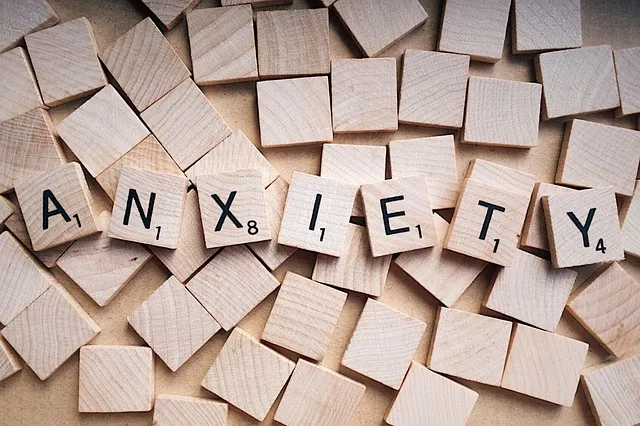Denver's Kaiser Inpatient Mental Health unit offers specialized Social Skills Training (SST) to help individuals with chronic mental health conditions improve social interactions and well-being. This holistic program teaches self-care, coping strategies, and mindfulness through interactive activities like role-playing, group discussions, and positive affirmations. By challenging negative thoughts and building confidence, SST equips patients with tools for successful social engagement, reducing anxiety, and enhancing overall emotional intelligence and self-esteem, complementing traditional therapy with personalized care.
Social skills training is a powerful tool for managing mental health conditions, fostering community integration, and improving quality of life. This comprehensive guide explores how such training can help individuals navigate social interactions with confidence. We delve into the specific programs offered by Kaiser Denver’s inpatient mental health facilities, highlighting their role in empowering patients. Key components of effective training are outlined, followed by strategies for integrating these skills into daily routines, ensuring long-term support and successful reintegration. Discover how Denver’s healthcare leaders are revolutionizing mental health care through innovative social skills training.
- Understanding Social Skills Training for Mental Health Conditions
- The Role of Inpatient Mental Health Programs at Kaiser Denver
- Key Components of Effective Social Skills Training
- Integrating Social Skills Training into Daily Life and Long-term Support
Understanding Social Skills Training for Mental Health Conditions

Social Skills Training (SST) is a specialized form of therapy designed to help individuals with mental health conditions navigate and improve their social interactions. This type of training recognizes that effective communication, relationship building, and understanding social cues are integral components of overall well-being, especially for those managing chronic mental health issues. SST often includes teaching practical strategies and techniques to enhance self-awareness, emotional regulation, and social problem-solving skills.
For individuals seeking support through programs like the ones offered at Denver’s Kaiser Inpatient Mental Health unit, understanding SST can be empowering. By learning mindfulness meditation techniques and practicing mood management strategies, patients can better cope with symptoms and engage in meaningful social activities. This approach not only complements traditional therapy but also equips mental health professionals with a Risk Assessment tool to measure progress and tailor interventions, ensuring personalized care tailored to each patient’s unique needs.
The Role of Inpatient Mental Health Programs at Kaiser Denver

The Role of Inpatient Mental Health Programs at Kaiser Denver
Kaiser Denver recognizes the importance of comprehensive mental health care and offers a range of inpatient programs tailored to address diverse needs. These programs are designed to provide intensive, specialized treatment for individuals facing severe mental health challenges. Patients receive 24/7 monitoring and support in a safe, controlled environment, making it an ideal setting for recovery and skill development.
One key aspect of these inpatient programs is their focus on building resilience and confidence. Through structured activities and therapeutic interventions, patients learn coping mechanisms to manage symptoms effectively. Additionally, Kaiser Denver emphasizes mental illness stigma reduction efforts, fostering an inclusive atmosphere where individuals feel understood and supported. This holistic approach ensures that patients not only receive the medical care they need but also develop the personal strengths required for long-term wellness.
Key Components of Effective Social Skills Training

Effective social skills training for mental health conditions involves several key components, tailored to address individual needs. One of the foundational elements is self-care routine development for better mental health. This includes teaching individuals coping strategies and stress management techniques to navigate their daily lives with greater ease. By fostering emotional well-being promotion techniques, such as mindfulness and relaxation exercises, participants gain tools to regulate their emotions and build resilience.
Additionally, incorporating mind over matter principles empowers individuals to challenge negative thought patterns and replace them with positive affirmations. Role-playing scenarios, group discussions, and feedback sessions create a safe environment for practicing social interactions. These activities not only enhance communication skills but also promote self-confidence, helping individuals feel more comfortable in various social settings. Denver’s Kaiser, for instance, offers inpatient mental health services, recognizing the importance of comprehensive training to support long-term recovery.
Integrating Social Skills Training into Daily Life and Long-term Support

Integrating Social Skills Training into daily life is a pivotal step for individuals managing mental health conditions, such as those seeking care at Denver’s Kaiser Inpatient Mental Health facility. This training extends beyond therapy sessions, aiming to empower patients with practical tools for engaging in social interactions. By practicing these skills in real-life scenarios, individuals can build confidence and navigate social situations more comfortably. For instance, role-playing exercises can help reduce anxiety when initiating conversations or expressing emotions.
Long-term support is equally crucial. Ongoing access to resources and peer groups fosters a sense of community, enabling continued growth in emotional intelligence. This supports not only self-esteem improvement but also facilitates better management of conditions like anxiety. Regular participation in social skills training sessions can transform challenges into opportunities for personal development, ultimately enhancing overall well-being.
Social skills training is a valuable component of mental health treatment, as evidenced by programs like those offered at Kaiser Denver’s inpatient mental health facilities. By focusing on key components such as communication, empathy, and group interaction, these programs empower individuals with mental health conditions to navigate social situations more effectively. Integrating this training into daily life and long-term support systems can lead to improved relationships, enhanced well-being, and a better quality of life for those struggling with their mental health in Denver or beyond.


